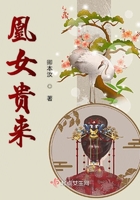These moral and economic difficulties, whether connected with the isolation of the home or with the partial and unsatisfactory efforts of trades unions, could be avoided only if society would frankly recognize the industrial situation as that which concerns us all, and would seriously prepare all classes of the community for their rela ( 202)-tion to the situation. A technical preparation would, of course, not be feasible, but a cultural one would be possible, so that all parts of the community might be intelligent in regard to the industrial developments and transitions going on about them. If American women could but obtain a liberating knowledge of that history of industry and commerce which is so similar in every country of the globe, the fact that so much factory labor is performed by immigrants would help to bring them nearer to the immigrant woman. Equipped with "the informing mind"on the one hand and with experience on the other, we could then walk together through the marvelous streets of the human city, no longer conscious whether we are natives or aliens, because we have become absorbed in a fraternal relation arising from a common experience.
And this attitude of understanding and respect for the worker is necessary, not only to appreciate what he produces, but to preserve his power of production, again showing the necessity for ****** that substitute for war -- human labor -- more aggressive and democratic. We are told that the conquered races everywhere, in their helplessness, are giving up the genuine practice of their own arts. In India, for instance, where their arts have been the blossom of many years of labor, ( 203) the conquered races are casting them aside as of no value in order that they may conform to the inferior art, or rather, lack of art, of their conquerors. Morris constantly lamented that in some parts of India the native arts were quite destroyed, and in many others nearly so; that in all parts they had more or less begun to sicken. This lack of respect and understanding of the primitive arts found among colonies of immigrants in a modern cosmopolitan city, produces a like result in that the arts languish and disappear. We have made an effort at Hull-House to recover something of the early industries from an immigrant neighborhood, and in a little exhibit called a labor museum, we have placed in historic sequence and order methods of spinning and weaving from a dozen nationalities in Asia Minor and Europe. The result has been a striking exhibition of the unity and similarity of the earlier industrial processes. Within the narrow confines of one room, the Syrian, the Greek, the Italian, the Russian, the Norwegian, the Dutch, and the Irish' find that the differences in their spinning have been merely putting the distaff upon a frame or placing the old hand-spindle in a horizontal position. A group of women representing vast differences in religion, in language, in tradition, and in nationality, exhibit practically no difference ( 204) in the daily arts by which, for a thousand generations, they have clothed their families. When American women come to visit them, the quickest method, in fact almost the only one of establishing a genuine companionship with them, is through this same industry, unless we except that still older occupation, the care of little children. Perhaps this experiment may claim to have made a genuine effort to find the basic experiences upon which a cosmopolitan community may unite at least on the industrial side. The recent date of the industrial revolution and our nearness to a primitive industry are shown by the fact that Italian mothers are more willing to have their daughters work in factories producing textile and food stuffs than in those which produce wood and metal. They interpret the entire situation so simply that it appears to them just what it is -- a mere continuation of woman's traditional work under changed conditions.
Another example of our nearness to early methods is shown by the fact that many women from South Italy and from the remoter parts of Russia have never seen a spinning- wheel, and look upon it as a new and marvelous invention.















